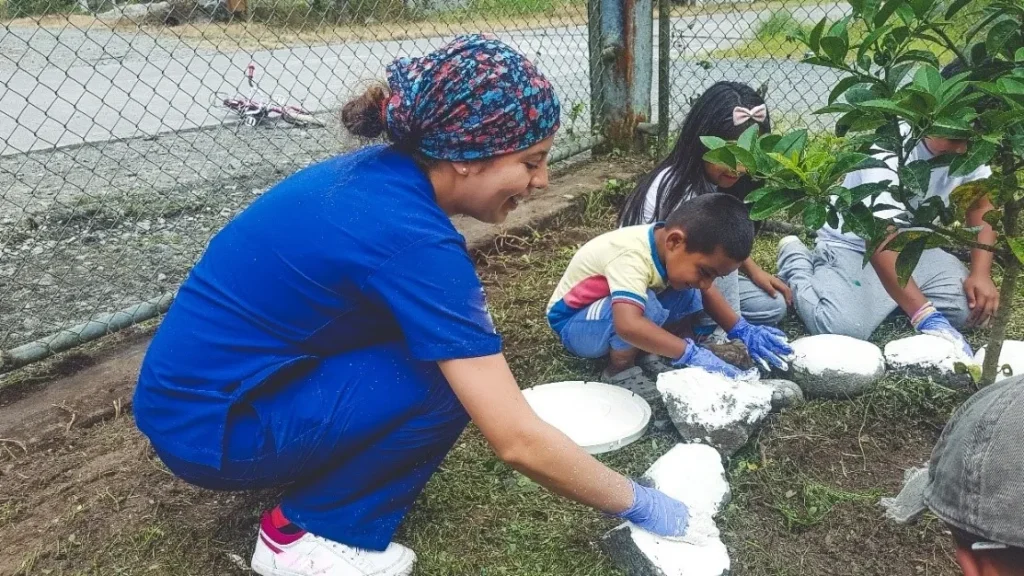Supporting Indigenous Communities
The majority of the time, Indigenous people have been overlooked in terms of all community privileges, including access to adequate food, education, healthcare, etc. Indigenous Americans in the United States are impacted by numerous health inequities, according to research. They encounter obstacles when trying to access medical services. In Indigenous communities, high levels of poverty, food insecurity, violence, and unfavorable socioeconomic conditions are among the bad social drivers of health.

Traditionally, midwives served as the channel to a much wider understanding of wellness across the life stages as the carriers of knowledge on the overall health of our families and people. Being a midwife is an intimate job; thus, we have always had to guard the “secrets” of the family and the community. Because of their profound understanding of the needs of the families and communities they served, midwives were known as “Nation Builders” in some Indigenous communities.
Challenges in Accessing Midwifery Care for Indigenous Peoples
For indigenous peoples, getting access to adequate midwifery care services can be challenging. Finding accessible services is only one aspect of it. It might be challenging to guarantee that Indigenous peoples have access to midwifery care since they frequently face numerous extra obstacles, such as racism or prejudice. Despite all this, the federal government discovered a solution to the issue. Through treaties with Indigenous nations, it has assumed a trust responsibility for the health and welfare of Indigenous peoples by offering direct health care services, such as maternity care, as well as monetary support to tribally managed health systems.
Federal health care programs serving Native American communities remain chronically underfunded and resource-constrained compared to other federally supported initiatives. Despite providing care to populations that have endured generations of historical trauma, systemic racism, and disproportionate health disparities, these programs receive insufficient financial support and infrastructure investment. Many Native American communities face geographic isolation, making it difficult to access timely, high-quality care. The situation is exacerbated by persistent shortages of medical professionals, limited access to culturally competent services, and outdated facilities.
This lack of resources contributes to higher rates of chronic illness, maternal health challenges, and mental health concerns among Native populations. Addressing these inequities requires a multi-faceted approach—one that includes increased federal funding, expanded recruitment and retention of Native health care workers, improved transportation access, and support for culturally grounded, community-led health initiatives. Elevating these programs is not only a matter of justice but a vital step toward holistic healing and sovereignty in health care.
Health Care Services and Financial Support for Indigenous Communities
The integrity and diligence of your midwifery team will determine how well you interact with the indigenous communities around your area of practice. Any business alliance needs to have mutual respect. You will get off to a good start if you keep in mind that you are building a business-to-community relationship rather than a business-to-business relationship.
Midwives play a vital role in supporting Indigenous communities, and that begins with recognizing the inherent worth of every individual—whether child, youth, adult, or elder, and whether woman, man, or another person. A balanced representation across all ages and life stages is essential in nurturing a holistic approach to care. Midwives must be attuned to the diverse voices within each community, honoring traditions, roles, and identities rooted in Indigenous ways of knowing. By embracing this inclusive vision, we affirm that every person contributes meaningfully to the well-being of their people—not only through action but by the very significance of their existence
Getting to know more about the Indigenous community needs a deeper connection with the birth values they share. We have the course available for you! Visit us at empoweringmidwiferyeducation.com
How we work. The Nature Conservancy. (n.d.). Retrieved December 10, 2022, from https://www.nature.org/en-us/about-us/who-we-are/how-we-work/ Supporting Indigenous Communities for Your Midwifery Practice
Great Midwifery Course: Indigenous Birth Cultures in the US


